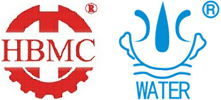2. Environmental applicability
(a). Strong water resistance. Although water immersion is harmful to tools, it is not as fatal as electronic tools. Moreover, since no electric spark is generated, even if it is used in a place with an explosion hazard, there is no possibility of a fire and explosion, and it is more suitable for use in coal mines and oil fields.
(b) Pneumatic tools can work in a variety of bad or harsh environments, but must be maintained (dust removal, water removal, fueling, etc.). Pneumatic tools can use internal combustion engine air pumps, so they are more suitable for field work. Pneumatic tools can work for a long time and are suitable for large-scale production lines.
3. Economics
(a). The initial investment in electronic tools is low, but the long-term use of energy is high, and the cost of tool repair and replacement is also high.
(b). Initial investment in pneumatic tools requires the establishment of air-pressure piping equipment, but long-term use is less costly in terms of energy consumption and tool maintenance.
(c). The weight of electronic tools is generally 3-4 times that of pneumatic tools, which is not suitable for long-term work, while pneumatic tools can improve work efficiency.






